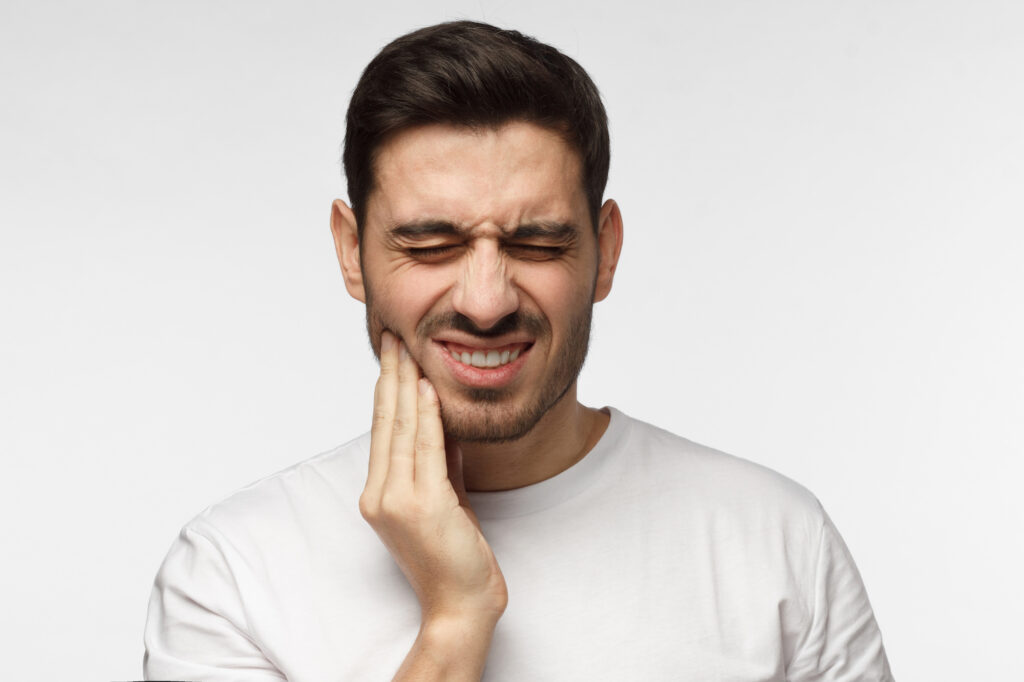If you’ve ever had teeth whitening in Harrisburg, you’ve probably already experienced whitening-induced tooth sensitivity. This side effect is very common, and it’s not very uncomfortable for most people.
But if you already have sensitive teeth, teeth whitening can make the problem worse, and make it harder for you to consume hot and cold beverages and foods. But why does this happen? What causes sensitivity after teeth whitening? In this article from Harrisburg Smiles, we’ll discuss everything you need to know.
How Does Teeth Whitening Work?
Let’s start with the basics about what teeth whitening actually does, and how it works. Just about every professional teeth whitening product uses the same active ingredients, which are hydrogen peroxide and carbamide peroxide.
These products contain volatile oxygen molecules. When they contact your teeth, these molecules react to the presence of organic stains and break the molecular bonds that hold them onto your teeth. This removes the stain and restores the natural white appearance of your enamel.
Why Does Teeth Whitening Cause Sensitivity?
The precise cause of teeth whitening-induced sensitivity is not yet known. However, the leading hypothesis has to do with the effects of peroxides on your enamel and dentin. As the peroxide product bleaches away the stains on your teeth, it also causes slight demineralization which makes your teeth more porous.
In turn, this exposes microtubules (also called dentinal tubules) within your teeth. These tiny, microscopic channels lead from the surface of the tooth to the center of the tooth, where they connect to the nerves of your tooth.
These dentinal tubules are what allow you to feel sensations on your teeth. However, it’s thought that when they’re exposed due to demineralization, they become much more sensitive and hyperactive, which can cause feelings of tooth pain and sensitivity.
This would also explain why teeth sensitivity goes away shortly after treatment stops. Once your teeth whitening treatment stops and the teeth remineralize, the dentinal tubules begin to seal up, which causes whitening-induced sensitivity to stop.
What Can I Do to Control Teeth Whitening Sensitivity?
If you already have sensitive teeth, you may want to take steps to control and prevent whitening-induced sensitivity. There are a few ways to do so.
First, discuss your sensitivity with your dentist, such as Dr. Sanath or Dr. Naveen Cherukuri. Many modern teeth whitening products integrate an anti-sensitivity medication, which can help keep you more comfortable.
In addition, take-home whitening from Harrisburg Smiles may be a good option for you. Take-home kits whiten your teeth more gradually than in-office whitening treatments, which can help reduce sensitivity.
It is also important to begin brushing with an anti-sensitivity toothpaste like Sensodyne, as well as a soft-bristled toothbrush. Rinsing with a fluoride mouthwash can also be helpful in remineralizing your teeth and resolving sensitivity.
Interested in Teeth Whitening? Worried About Sensitivity? We’re Here to Help!
At Harrisburg Smiles, Dr. Naveen Cherukuri and Dr. Sanath can ensure that you get a whiter smile without overly-sensitive teeth. Using the latest techniques and products, we’ll whiten your smile while minimizing potential side effects, ensuring you feel great about how you look. Don’t wait. Contact us at (980) 258-0866 to get started, or stop by our office at 4310 Physicians Blvd, Harrisburg, NC 28075 to make an appointment in person.

